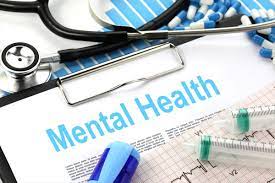OCD personality disorder is a condition that is characterized by obsessive thoughts and compulsive behaviors. People with OCD often experience intrusive thoughts that make them feel uncomfortable or scared. They may also engage in compulsive behaviors as a way of trying to relieve these feelings. If you think that you or someone you know may be suffering from OCD personality disorder, it is important to get help. In this blog post, we will discuss the symptoms of OCPD, and how it can be treated.
Contents
- 1 Obsessive-Compulsive Personality Disorder
- 2 What Are The Signs Of Obsessive-Compulsive Personality Disorder?
- 3 What Triggers The OCD Personality Disorder?
- 4 Who Are Most Likely To Get OCPD?
- 5 How OCPD Is Related To OCD?
- 6 How To Diagnose The OCD Personality Disorder?
- 7 Treatment Options For OCPD
- 8 Self-Help To Manage OCPD
- 9 Conclusion
Obsessive-Compulsive Personality Disorder
OCD personality disorder is a mental health disorder characterized by excessive perfectionism, preoccupation with orderliness, and avoidance of uncertainty or risk. People with Obsessive compulsive personality disorder may also be inflexible in their thinking and resistant to change. They may have difficulty making decisions or trusting others. Their awkward behavior can make it difficult to form relationships.
Cluster C personality disorder, which includes OCPD, is characterized by an excessive need for control. People with OCPD may feel the need to organize their lives in a very rigid and structured way. They often become preoccupied with details, rules, and lists.
What Are The Signs Of Obsessive-Compulsive Personality Disorder?

A person suffering with the condition of OCPD shows signs such as:
- Having an excessive need for rules, order, and control. Overall that person wanted to be a perfectionist in whatever they do.
- Becoming preoccupied with details and lists.
- Experiencing difficulty making decisions or trusting others.
- Being overly conscientious, scrupulous, and inflexible in their thinking.
- Having trouble forming relationships due to awkward behavior.
- Feeling excessively restrained and inhibited in their emotions and behavior
- Being preoccupied with details, rules, and lists.
- Having a perfectionist attitude that is difficult to please.
- Struggling with decisions or trusting others.
- Resisting change and being inflexible in their thinking.
- Having difficulty forming relationships due to a lack.
What Triggers The OCD Personality Disorder?
It is still not completely clear what causes OCD personality disorder. Research suggests that it may be caused by a combination of a few reasons. Here are some instances that might be possible for this condition in research:
- Genetic factor: It is assumed that genes play a role in this type of disorder. Another condition when Neurotransmitters, which are chemicals that help different parts of the brain communicate with each other. An imbalance in neurotransmitters may lead to OCD personality disorder.
- Environmental factors: Traumatic experiences, such as abuse or neglect, can trigger the development of OCD personality disorder. Stressful situations, such as the death of a loved one or the loss of a job, can also contribute to the condition.
- At Early Age Factor: In some cases, the signs of OCPD may start to develop during childhood whose parents were too strict and demanding.
Who Are Most Likely To Get OCPD?
The International OCD Foundation concluded that men are having higher probability to get OCPD than women. It also stated that if anyone’s family has any history of OCD, then the person is more likely to have it too. Also, people with any existing mental problem or coping with stress, depression, or anxiety are likely to develop OCPD. Children whose parents wanted them to be obedient and perfect kids are also considered to be in the risk group.
How OCPD Is Related To OCD?
Since OCPD is a sub-condition of OCD, here we have stated how to interpret them:
- OCD focuses on recurrent thoughts, worries, or fears that cause anxiety. People with OCD use rituals or compulsions to reduce the anxiety caused by these thoughts. In this case, people felt depressed and prefer to isolate themselves and accept that they need to go for treatment.
- OCPD is characterized by an excessive need for order and control. People with OCPD are focused on rules, details, and procedures. They may become preoccupied with perfectionism or need to be overly organized in their daily lives. People with this condition are comfortable and do not think that they need to consider any doctor or medical diagnosis.
- Both OCPD and OCD involve intrusive, unwanted thoughts that can cause distress and interfere with a person’s daily life. Both also involve compulsive behaviors, such as counting or checking to relieve anxiety. The key difference is that people with OCPD tend to be preoccupied with rules, orderliness, inflexibility, exactness, and organization, which can lead to rigidity and perfectionism. People with OCD, on the other hand, have obsessive thoughts or fears that are not related to these qualities and behaviors.Another similarity between OCPD and OCD is that both disorders can be treated successfully with psychotherapy and/or medication.
How To Diagnose The OCD Personality Disorder?

The doctor may ask the patient questions to determine if the person has OCPD. The answers are used to assess symptoms and rule out other potential disorders, such as depression or anxiety. The doctor might also recommend a physical exam to check for any medical issues that might be causing the symptoms. Additionally, they may ask the patient to fill out questionnaires, such as the Minnesota Multiphasic Personality Inventory (MMPI). Afterward, they may refer the patient to a mental health specialist for further diagnosis.
Treatment Options For OCPD
The main goal of treatment is to help people with OCPD learn how to manage their symptoms and improve their quality of life. Here are some of them to cure this condition with the help of professionals:
Therapy
- CBT: cognitive behavioral therapy is the most effective way to treat OCPD. It helps the patient to recognize and change any negative thinking or behaviors that are causing distress. Therapy may also focus on developing healthier coping strategies for stressful situations, learning how to set realistic goals, and forming positive relationships with others.
- Psychodynamic Therapy: This approach focuses on the unconscious motivations and feelings that are influencing the person’s behavior.
Medication
In some cases, antidepressant medications may be recommended to help reduce symptoms of depression or anxiety associated with OCD personality disorder. With patience and dedication, people can learn how to manage their symptoms and lead healthier lives.
Self-Help To Manage OCPD

Check these solutions that would be helpful to reduce symptoms of OCPD:
Control Stress And Depression
Relaxation tactics such as mindfulness, deep breathing, and yoga may help manage stress.
Challenge Negative Thoughts; Acknowledge that your thoughts are irrational and challenge them with facts. Regular exercise, healthy meals, and proper sleep habits can also improve mental health.
Practice Self-Compassion
Practice self-compassion by being kinder to yourself and reducing any guilt or shame you may be feeling. Connecting with family and friends can help reduce loneliness and boost your self-esteem. Seek out supportive people in your life who are understanding and nonjudgmental. The Self-talk audio session can improve the way you think about yourself.
Manage Emotions
Go easy on accepting and working over to reduce any emotions that can cause distress. With the help of a professional, you can identify triggers and learn how to manage them in a healthy way. Keep engaging with people and activities that make you feel good and use distraction techniques to take your mind off of negative thoughts or urges.
Conclusion
We are wrapping up with everything about OCD Personality Disorder. OCPD can affect daily life and relationships if left untreated. People with this condition should not be ashamed as there are effective treatments available to manage the symptoms. With the appropriate treatment, people can learn how to manage their symptoms and lead healthier lives. Feel free to consider to professional for help if you or a loved one is struggling with OCPD.
We hope that this article was able to provide some helpful insights into the diagnosis and treatment of OCD personality disorder.
Take care, and don’t forget that you are not alone! OCD is a mental health disorder characterized by obsessions and compulsions. If you have any queries regarding OCD treatment, ERP therapy experienced therapists at OCDMantra can help: Book a trial OCD therapy session


